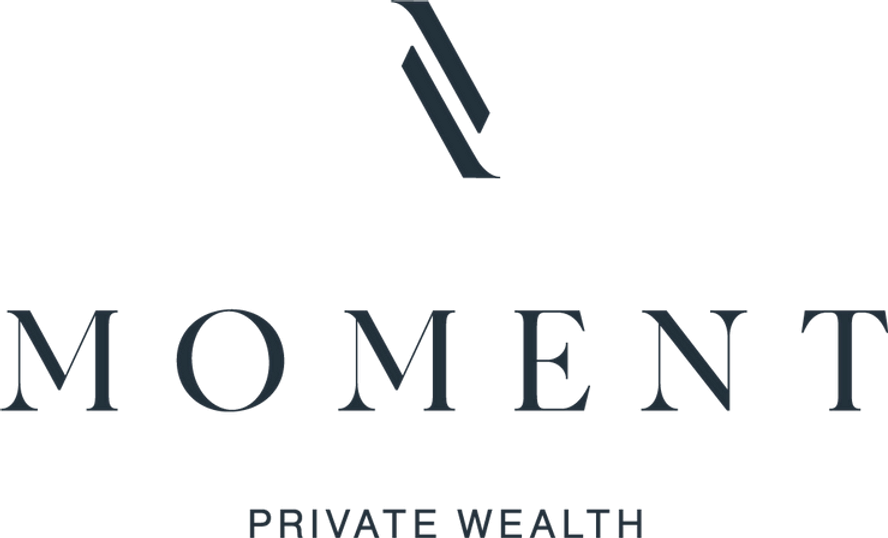The 3 Phases of an Athlete’s Wealth Journey
- Brendan Fraleigh
- Sep 17, 2025
- 5 min read
Updated: Oct 10, 2025
(How to keep more, protect more, and build what lasts.)
If you're an athlete, your career will move faster than most people’s lifetime.
Your earning years start earlier. Your peak is shorter. And your transition out of the game?
It usually happens while your peers are just starting to hit their stride.
That’s why your approach to wealth has to be different. It has to be smarter, more disciplined, and designed around your real timeline — not the one most people follow.
At Moment Private Wealth, we often break down an athlete’s financial life into three distinct phases:
Foundation: When the money starts coming in.
Peak: When you’re earning big and playing at the highest level.
Impact: When the game changes — and you start thinking bigger than yourself.
Each phase requires a different mindset and a different plan.
Here's how to think through each one — and how to avoid the common traps that can derail even the most talented pros.

Phase 1: Foundation
(Where most mistakes happen.)
This phase starts when the income begins to show up — NIL deals, rookie contracts, first bonuses.
For many athletes, it’s the first time real money is hitting the account.
And that’s where the danger starts.
What you should focus on:
Building your financial base — not your lifestyle.
Protecting yourself from the unexpected: injury, lawsuits, bad deals.
Learning the basics: taxes, budgeting, and knowing what “after-tax” really means.
Assembling your team: financial advisor, CPA, attorney, and someone you trust who’s not afraid to tell you no.
What to avoid:
Spending like it’s forever. (Spoiler: It’s not.)
Assuming a deal is done before the check clears.
Letting friends, agents, or brands pressure you into financial decisions.
Waiting too long to build habits — lifestyle creep is real and hard to reverse.
At this stage, the biggest wins come from what you don’t do. Don’t overextend. Don’t assume. Don’t wing it.
If you can stay disciplined in Phase 1, you’ll give yourself room to grow in Phase 2.
Phase 2: Peak
This is when you’re at your earning high point.
Contracts are bigger.
Deals are more complex.
Everyone wants to be in your inner circle.
This phase can be incredibly rewarding — and incredibly risky.
Because the faster the money comes in, the easier it is to lose track of where it’s going.
What you should focus on:
Sustainable growth — not just fast returns.
Strategic diversification: real estate, equity, business interests, passive income.
Advanced tax planning: strategy, structure, and types of income.
Structuring your lifestyle around cash flow, not net worth.
This is also the time to start preparing for the next phase — even if it feels far away.
What to avoid:
Making emotional investment decisions. (Friends don’t always make good business partners.)
Buying liabilities that look like assets.
Forgetting that endorsements, sponsorships, and playing time aren’t guaranteed forever.
Ignoring estate planning — especially if you have kids or are supporting family.
Your goal in Phase 2 isn’t just to grow your money. It’s to build options.
And the best time to do that?
When things are going well.
Phase 3: Impact
(Where the real wealth is built).
This is where the game changes.
Maybe you’ve retired.
Maybe you’ve stepped away from pro sports or pivoted into something new.
Regardless of how you got here, the priorities shift.
In this phase, the income slows down — but the opportunities open up.
What you should focus on:
Replacing active income with income-producing assets or business ventures.
Protecting your downside: lower risk, lower fees, lower drama.
Maintaining a smart lifestyle that your post-career income can support.
Defining your legacy: not just financially, but through what you build and give.
This phase is also where identity becomes a huge factor.
We’ve seen it time and time again — the mental transition can be just as challenging as the financial one.
What to avoid:
Hanging on to old spending patterns with new income levels.
Selling assets under pressure.
Trying to “prove you’re still winning” with risky ventures.
Losing track of the long game.
Wealth isn’t what you make. It’s what you keep — what you build and the impact you have.
The athletes who win in this phase are the ones who prepared before they had to.
Why This Matters More Than You Think
Athletes operate on a compressed financial timeline.
You start earlier, earn more, and exit faster than just about any other profession.
Which means there’s less room for error.
One bad investment.
One contract dispute.
One year of unchecked spending — and you’re starting over.
But when you treat your wealth journey like a career — with training, strategy, and accountability — the odds shift in your favor.
Big time.
These 3 phases are just the beginning of your financial journey. Wealth Management for Professional Athletes doesn't happen overnight. But if done right on the upfront, you will be better off than 99.9% of your teammates.
___________________________________________________________________________________________________________
If you are an athlete and want to better understand how to manage your wealth, schedule a call with a Moment Founder.
Not sure what questions to ask, check out this video on 10 questions you should ask when interviewing a financial advisor.
Get in Touch With An Advisor
Frequently Asked Questions
Here are some answers to questions I received frequently about this topic.
How do I know if I have the right team in place? It starts with asking the right questions. "How will you help me reach my goals? Who else have you worked with? How have you helped athletes just like me?" They need to be able these questions with direct answers.
How do I know which phase I am in? Start by asking: Where is your income coming from, and how stable is it? Are you still building your foundation, maximizing peak earnings, or transitioning into a new chapter? The phase you're in shapes the financial decisions you should be making right now.
What’s the most important move I can make in my current phase? It depends on where you are. In Foundation, it's about protection and habits. In Peak, it’s about planning for life after the game. In Impact, it’s about sustainability. Each phase has its own set of priorities — knowing yours is the first step.
Can I skip a phase if I am already earning big money? No — and skipping the Foundation phase is one of the biggest mistakes we see. Even if you're making great money, you still need the basics in place: cash flow plan, protection, and a smart team around you.
What is the first step I should take? Set up a call with a financial advisor at Moment Private Wealth who specializes wealth management for professional athletes.
___________________________________________________________________________________________________________
*Moment Private Wealth offers information on tax and estate planning that is general in nature. Tax and Legal advice are not provided by Moment Private Wealth. Consult an attorney or tax professional regarding your specific legal or tax situation.




Comments